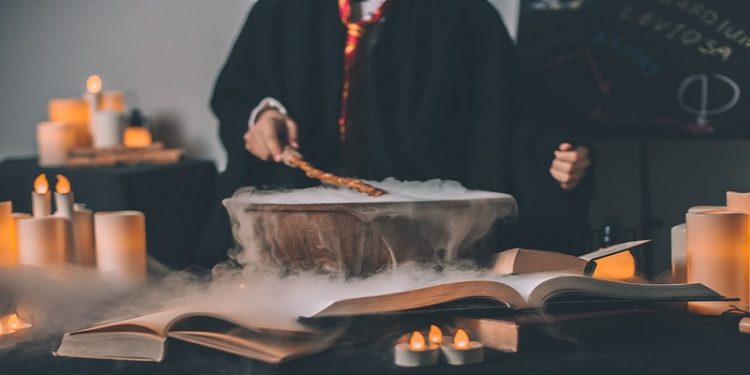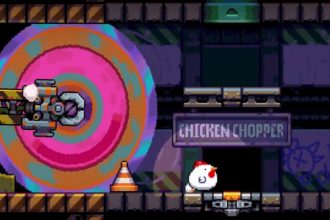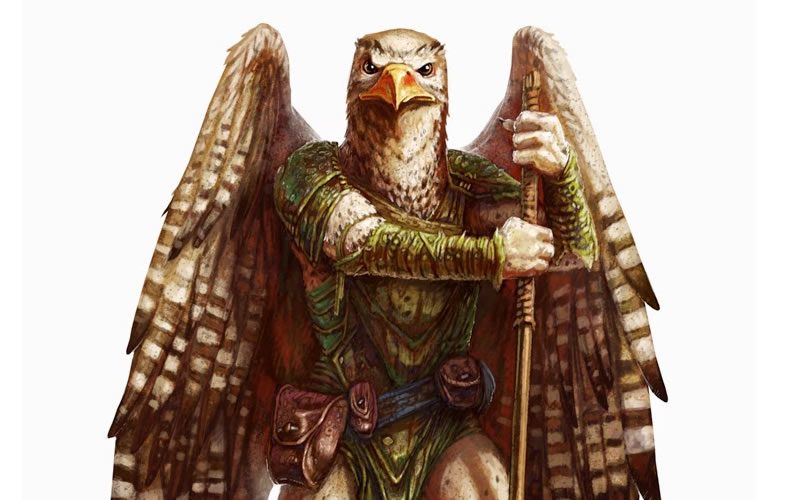Creating a Magic System P4

A roleplaying magic system can be a pretty cut and dry thing: a spell list, damage, area of effect, and so on, but if done correctly, it can do so much more. Properly done, a magic system can be used to deepen the setting’s theme and background, informing the players and DM about the world, the peoples, and cultures.
All “magic” systems rely on manipulating reality through the use of magic power, special effects, technology, innate abilities, or mutations to create an effect, such as healing, damaging others, buffing, disguise, summoning, animating and so on. The generation of these effects typically takes time to produce and generally drain the character’s health, energy, memory, spiritual power, etc. Such systems are often limited in how much can be accessed at any given time, subject to failure or interruption, through various methods and mechanics. These articles examine each of the abovementioned aspects at a high level.
Spell Crafting
Most games give the player a list of pre-existing spells from which to choose. Others offer players spell customization – within set guidelines. The more options such a system provides, the more apt it is to break the game. Depending on the game in question, the importance of research, assigned skills, magic (technology) types, player ingenuity, and luck-of-the-dice will vary. Spells (or power generation) in this type of system may be as simple or complex as needed. In such systems, most powers are customizable with enhancements or limitations. Some examples are:
- As combining various attributes such as spell-points (mana), spell range, casting-time, and type of damage. Casting time can include Ritual Spells.
- complex incantations or spell songs
- In the Nobilis RPG, your character is an Anthropomorphic Personification of any concept. It is all about doing anything you can logically infer from control over a word/concept and everything it represents.
- The HERO System has the “Variable Power Pool,” which is a set of points that can be used to (temporarily) buy any power that has that cost or less. It’s often bought with assorted limitations to make it less of a Green Lantern Ring Game-Breaker.
- The original DC Heroes RPG had the following examples:
- Force Manipulation, which could simulate any ‘Physical’ power, as well as create solid objects of force.
- Omni-Power. Could reproduce all but the most expensive powers for a small in-game fee.
- Sorcery, which could simulate ANY power, but if used at too high a level could potentially wear out the caster.
- Omni-Gadget: allows a character to pay in advance to have a certain number of useful gadgets with him.
- World Tree (an anthro RPG) gives players access to divine Nouns and Verbs, which can be combined to produce virtually any magical effects imaginable.
Spell Components
In most tabletop RPGs, in addition to spending mana, a spell slot, power points, or whatever, to activate a spell, is a material cost. This material cost is what most systems call “spell components.” These components can be found, purchased, looted, scavenged, harvested from enemies, and combined into something new. When characters gather the raw ingredients in a more realistic setting, there should be a check. This check is to ensure the items they’re hoarding are collected, stored, and/or preserved correctly. If not, their effort may be in vain, and their effort wasted. These components usually fall into one of the following categories, with some overlap:
- Symbolic items – wedding rings, grave dirt, a pure red rose. Some materials, such as gold and silver, carry heavy symbolic value all by themselves.
- Personal items – those related to your intended victim, recipient, or yourself. These include articles of clothing, treasured trinkets, personal effects, hair, baby teeth, fingernail clippings, fingers, urine samples, blood, etc.
- Body parts from exotic creatures are another source of components. Some “components” are impossible to obtain, such as rooster teeth. Keep in mind, the more magical the creature, the better. A unicorn’s horn beats a crocodile’s liver, but the blood of a god is better still, doubly so if it has crystallized. Sometimes the components need to come from a Monster Lord,
- Plants traditionally associated with magic (wolfsbane, nightshade, mandrake, etc.) are better than blades of grass.
- Inorganic substances—certain types of rocks, minerals, metals, etc. May have to come from a specific place (e.g., dust from a graveyard or water from the river Styx).
- Sometimes components have non-physical requirements, such as bottled moonlight or the sound of a cat’s footsteps.
- Items with improbably specific requirements—an unripe Sunset Wonder picked 3 minutes before noon on the first frosty day in the autumn and peeled left-handedly using a silver knife with a blade less than half an inch wide.
- Perishable or fragile items—these are usually put into creating an improbably durable object, such as a gown of cobweb or a necklace of dewdrops. (Which may expire without notice, and very suddenly.)
- Reusable items—equipment for mixing the ingredients or casting the spell, like a Magic Cauldron or a Magic Wand. These could be as simple as a bowl and spoon or as complicated as an entire alchemical laboratory.
Magic Item Crafting
An extension of the idea of spell components is magic item crafting, which uses the same types of components as spells. It is an alternative to buying everything from shops. When done properly (and with DM fiat), these items may be superior to anything that can be acquired otherwise.
Furthermore, if the PCs spend time stockpiling and crafting items, it can become a source of revenue for players. Though PCs need to be wary, as the magic items sold to shopkeepers may end up in enemy hands.
A robust magical item crafting system should require tools and/or a workshop or laboratory, appropriate skills, raw materials available, and time. Note that workshops or laboratories can be of the portable type. Depending on the exact type of a magical item being created, crafters will need different tools. Balancing these different pieces will help to make the system fun, user-friendly, and encourage PCs to use the system. Keep in mind that each category of item-crafting should have distinct types of crafting skills. For example, alchemists craft potions, fletchers craft arrows, armorsmiths enchant armor, and so on.
Magical Maladies
According to TV Tropes
Magical plagues need not be limited to just attacking the physical being of those who contract it and thus are not limited to the standard vectors of transmission of common illnesses. Curses may be designed to infect the spiritual essence of a creature, or even to (only) infect other magic users as they cast spells of their own. While this versatility may seem to make a magically created plague more reliable than other types, it is still not uncommon for the caster who created it to be killed as well, either directly by being infected themselves, or in the aftermath that the disease’s spread causes.
In almost all gaming systems, there are magical maladies – those things that are caught or spread through magical influence. These maladies are created through the supernatural powers of a person, creature, or group, whether by accident or design. In classical literature, magic plagues are brought about by the gods or God to punish society for some collective sin that must make restitution for the damage. Fantasy uses of the idea are less positive.
- Necromancers might bring about the Zombie Apocalypse. So, too might scientists, as the stories behind “The Last of Us” and “Resident Evil” video game franchise show.
- People may be turned into monsters due to a magical plague. Examples include Lycanthropy and Vampirism, depending on how it’s handled in-universe.
- In Hollow Knight: The main threat in the game is a mysterious, terrifying plague that’s turning Hallownest into a Death World. Bugs afflicted with it are driven to violent insanity by it and get reanimated as monstrous husks after dying. It was created by the Radiance, the god who created bug-kind, as a “divine” punishment after they stopped worshiping her and your character is an Empty Shell created to try and contain it.
- Worshippers of the God of Disease (or people working in CDC laboratories) release an epidemic, but don’t have the ability to contain or control its spread.
- A magical condition may be spread to weaken a kingdom. A real-life example of these comes from Christianity. The plagues that God inflicted on the Pharoah of Egypt to get him, as Moses commands to “let my people go.”
- Eldritch Abomination cultists obtain a Lovecraftian superpower that causes those around them to get sick and die.
- Some magical contagions may allow others to control people.
- A shaman of a forgotten tribe uses forbidden magic in the vain hopes that it keeps his people from being wiped out.
- A real-life example might be someone who finds something radioactive that gets everyone sick around them. Star Trek: The Next Generation “Thine Own Self” has this happen.
- Magical diseases may be caused accidentally, as well due to mishandling/ improper disposal of spell components, magic items, or potions.
Whatever the reasons behind it, using disease-based magic is always an evil act for the sheer amount of suffering it can bring about.
In Conclusion
As you can see, there are lots of pieces to build a magic system. The more of these pieces your game uses for the magic system, the more alive it will seem. Look over the tips presented in these articles to help bring your magic systems to life.



